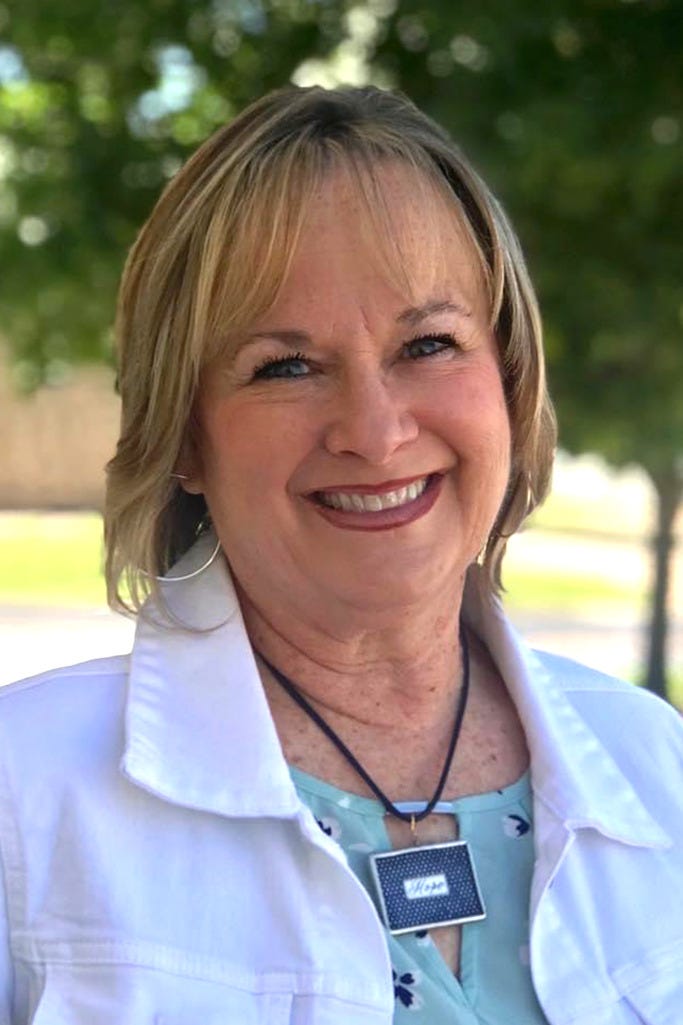Grief and guilt over Texas flooding deaths
Parents who've lost children offer sympathy — and insight — after the Lone Star State disaster.
THE GRIEF. The guilt. The giant fog.
Matt Collins can’t help but experience the catastrophic Texas flooding — especially the deaths of children in a sudden natural disaster — through a deeply personal lens.
“It’s hard to see this situation in Texas and not immediately go back to, ‘What was that like for me?’” said Collins, who with his wife, Macy, founded the Magnolia Foundation, a faith-based nonprofit that supports parents who lose a child.
Hattie Jo Collins, Matt and Macy’s 4-year-old daughter, was one of five children and 14 adults killed March 3, 2020, when an EF4 tornado battered their home city of Cookeville, Tennessee, 80 miles east of Nashville.
This past week, Fourth of July flooding in the Texas Hill Country claimed at least 120 lives — including dozens of young campers — and sent Matt Collins’ mind racing back to the night Hattie died.
“I just imagine that there’s probably a lot of guilt that the parents have,” said Collins, whose family attends the Collegeside Church of Christ in Cookeville. “Obviously, nobody sends their kids to camp and expects floodwaters to take them away. So it’s not like the parents did anything wrong.”
But that won’t stop mothers and fathers from asking “What if?” questions.
What could I have done? Why wasn’t I there? Why did I send my daughter to camp in the first place?
In Collins’ case, he’s thought “a million times” about the way he held Hattie as the storm raged.
“I held her kind of across my body,” he recalled. “If I had held her straight up and down and kind of enveloped her, would things have been different? You kind of go through that scenario of, if I had done this and not this, what would have happened?
“And I’m sure,” he added, “there are parents that are thinking, ‘OK, we were on the edge of even sending our kid to camp, and we sent them to camp, and this happened,’ like it’s their fault.”

It’s important, Collins believes, for grieving parents to express such thoughts out loud.
“Specifically for parents who have lost their kids, there may be a desire to kind of keep those things inside,” he said. “But I just don’t think that’s healthy or beneficial.”
The parents need people willing to listen and not express judgment, he stressed. Isolation is no recipe for healing.
Loved ones’ presence — not their “God needed an angel” platitudes — is what’s needed.
“If there is one big piece of advice that I would share with people who are trying to help families who have lost kids, it’s that they can’t,” Collins said. “You can’t fix anything, so don’t try to fix something. Don’t try to give answers to ‘Why?’ questions.”
Just be there.
Share a hug. Shed a tear. Offer a listening ear.
Grief and joy can hold hands
Like Matt and Macy Collins, Rick and Beverly Ross (no relation to this writer) know what it feels like to lose a daughter.
Jenny Bizaillion, 31, the oldest of the Rosses’ three children, died Feb. 22, 2010, at age 31. Group A strep bacteria claimed Bizaillion’s life less than three weeks after she entered the hospital with an initial flu diagnosis.
“We stood around Jenny’s bed, and — as our belief system would say — the angels swooped in and took Jenny to see the face of Jesus,” Beverly Ross said. “We left the hospital that day to go tell a 9-year-old girl her mommy was gone.
“And I went into overload at that point, learning everything I could learn about grieving children to help her,” Ross added, referring to her granddaughter Malaya, now 25 and a mother herself.
A former stay-at-home mother and later a first-grade teacher, Ross embraced a new calling as a professional counselor a few years before her daughter’s passing.
She’s the founder and executive director of Wise County Christian Counseling in Decatur, Texas, about 40 miles north of Fort Worth. She formed a grief center called Jenny’s Hope after Bizaillion’s death and co-wrote a 2020 book with her son Josh titled “Scarred Hope: A Mother and Son Learn to Carry Grief and Live with Joy.”

After a tragedy such as the Texas flooding, everyone wants answers — even if none exists.
“Our brains are not wired to understand why something like this happened,” said Ross, a Decatur Church of Christ member, “and therefore we see a lot of anger on social media and a lot of blaming.”
For children and adults overwhelmed with the trauma, Ross recommends a variety of physical, mental and spiritual coping techniques.
These are just a few: Drink plenty of water. Go on a walk. Express feelings in a journal or — in the case of a child — color a picture for a victim’s family. Pray for strength.
“This is super important, and I’ve really been doing this the last few days: Look for something in your day that you’re grateful for,” Ross said. “In every research study done, gratitude is the link for joy. … And joy is not the opposite of grief.”
As she describes it, grief and joy can hold hands.
“Grief and joy are both rooted in love,” she said. “We do not grieve what we don’t love, and joy is rooted in love. .. Joy gives us the strength to carry the pain.”










